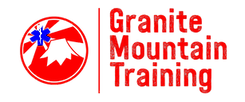Emergency Medical Technicians (EMTs) play a critical role in our healthcare system, providing immediate medical care to individuals in crisis. The ability to make quick, informed decisions and administer appropriate medical interventions can often mean the difference between life and death. To prepare EMTs for the diverse and unpredictable scenarios they may encounter, moulage training has emerged as an invaluable tool in enhancing EMT programs.
Understanding Moulage Training
Moulage, derived from the French word "mouler" meaning "to mold," is the practice of creating realistic mock injuries and medical conditions on mannequins, volunteers, or standardized patients. This technique has its origins in military and theatrical settings, where lifelike wounds and medical scenarios were simulated to train soldiers and medical professionals. In recent years, moulage has gained traction in healthcare education, particularly in EMT programs, as a means of providing trainees with a realistic and immersive learning experience.
The Importance of Realism
One of the key advantages of moulage training is its ability to recreate lifelike scenarios. EMTs often work in high-pressure environments where split-second decisions are crucial. Moulage helps bridge the gap between theoretical knowledge and practical application by creating situations that closely mimic real-life emergencies. Trainees can experience the sights, sounds, and challenges they might face in the field, helping to build confidence and preparedness.
Enhancing Critical Thinking and Decision-Making
Moulage training promotes critical thinking and decision-making skills in EMTs. Trainees are exposed to a wide array of scenarios, each with varying levels of complexity. This challenges them to assess the situation, prioritize actions, and respond appropriately. By engaging in hands-on experiences that mirror real emergencies, EMTs develop the ability to adapt to changing circumstances and make informed choices under pressure.
Effective Communication and Teamwork
In the field, EMTs often work as part of a team, collaborating with paramedics, nurses, and other healthcare professionals. Moulage training also emphasizes effective communication and teamwork. Scenarios can be designed to require coordination and cooperation among team members to ensure seamless patient care. This aspect of training helps EMTs learn to delegate tasks, convey critical information clearly, and work together to achieve the best possible outcomes.
Empathy and Patient Interaction
Beyond medical skills, moulage training fosters empathy and patient interaction skills. Trainees must not only address physical injuries but also provide emotional support to patients. By encountering simulated patients with realistic injuries, emotions, and responses, EMTs learn to approach patients with compassion and sensitivity, even in stressful situations.
Preparing for Uncommon Situations
While some medical scenarios are more common, EMTs occasionally encounter rare or unusual cases. Moulage training can introduce trainees to these less frequent situations, ensuring they are well-prepared for any challenge. From hazardous material exposures to mass casualty incidents, moulage training equips EMTs with the knowledge and skills needed to respond effectively to a wide range of emergencies.
Challenges and Considerations
While moulage training offers numerous benefits, it also comes with challenges. Creating realistic moulage requires skilled trainers, specialized equipment, and time-intensive preparation. Additionally, trainees may experience emotional reactions when confronted with lifelike injuries, requiring debriefing and psychological support.
Conclusion
Moulage training has revolutionized the way EMT programs prepare future healthcare professionals. By providing immersive, realistic experiences, this training methodology enhances critical skills, promotes effective communication, and cultivates empathy among EMTs. As the healthcare landscape continues to evolve, moulage training remains a crucial tool in ensuring that EMTs are not only well-equipped with medical knowledge but also adept at applying that knowledge in real-world emergencies.
-min%20(1).png)
Comments